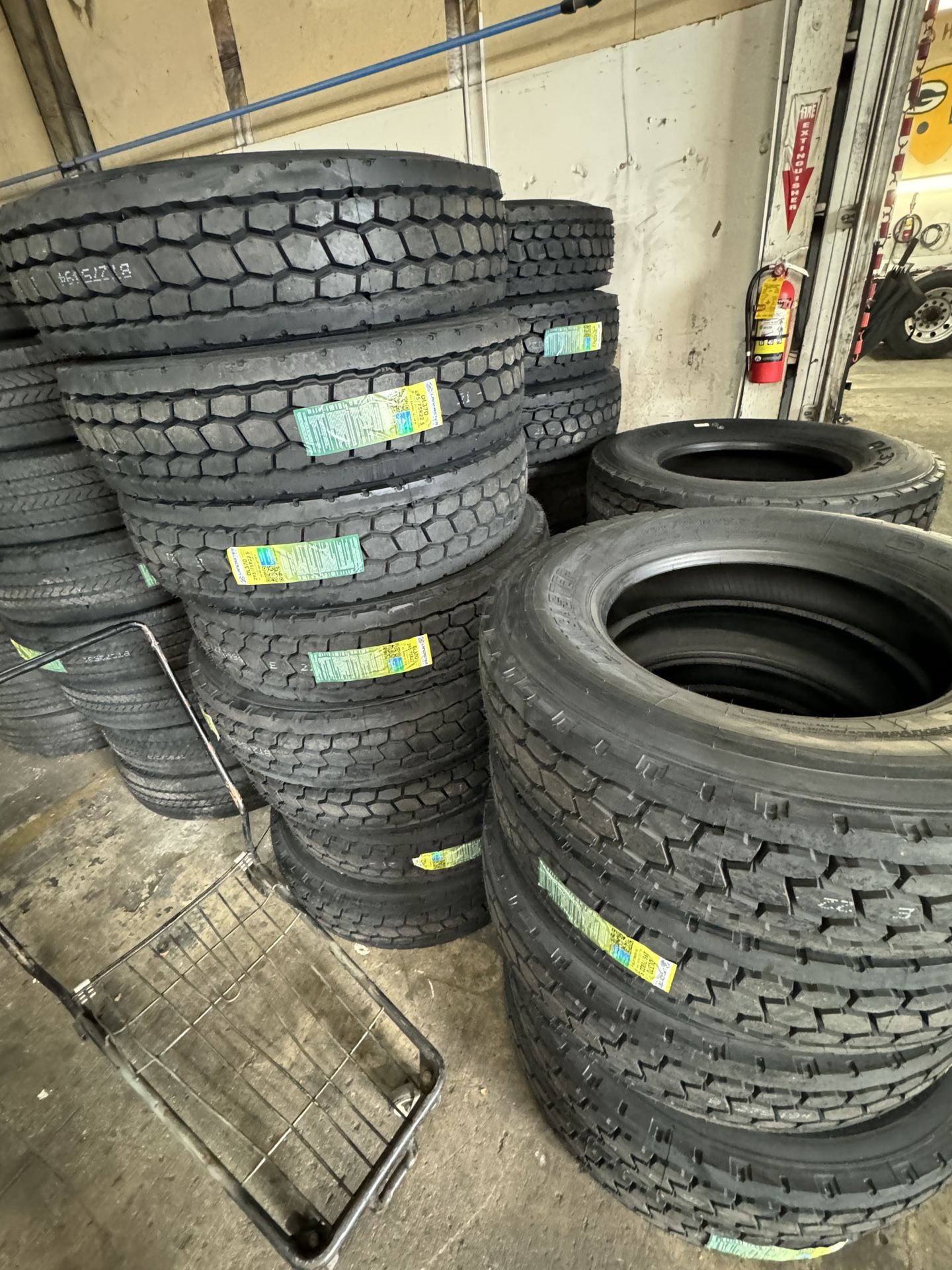Regarding maintaining the lifespan and effectiveness of heavy-duty vehicle performance, one of the significant yet overlooked factors is the rotation of tires. Making sure that tires are regularly rotated can considerably affect not just the longevity of the tires but additionally the overall performance and safety of the machine on the road. Taking into account the demands of extended trips and burdens, properly managing tire wear becomes crucial for transportation professionals and logistics managers alike.

In this article explore the significance of tire rotation in heavy-duty vehicles, along with an array of relevant topics that can help you in making knowledgeable decisions about your tire options and upkeep methods. From comprehending the differences between steering and drive tires to noticing the signs that suggest it may be the right moment for a change, we will offer guidance that will help keep your truck operating efficiently and effectively for an extended period.
Selecting the Best Tires for Your Semi-Truck
Choosing the appropriate tires for your semi-truck is essential for achieving maximum performance, safety, and durability. Your decision will depend on multiple factors including the type of loads you carry, the terrain you navigate, and the weather conditions you generally encounter. Grasping the requirements of your specific routes and cargo can considerably impact your productivity and costs. For example, if you often drive on highways, you might focus on tires that offer low rolling resistance for enhanced fuel efficiency.
It is also vital to take into account the different types of tires available. Steer tires and drive tires are designed for specific purposes; steer tires offer better handling and steering responsiveness, while drive tires provide enhanced traction and durability for powering the truck ahead. Additionally, the load rating of a tire is a critical factor; you need tires that can safely support the weight of your truck and its cargo without risking performance.
Don’t forget about weather-related variations. If you work in regions that experience extreme winters, selecting all-season or dedicated winter tires can improve traction and safety during challenging weather conditions. Ultimately, investing the time to choose the right tires for your semi-truck will prolong tire life, boost fuel efficiency, and increase overall safety on the highway.
Tire Maintenance and Safety
Proper tyre care is essential for the security of heavy vehicle operations. Routine inspections assist detect indicators of wear or damage that could result to tire blowouts. Operators should check tire thickness, observe irregular wear, and ensure there are none visible cuts or side problems. Such checks should be a routine part of the pre-departure inspection procedure, ensuring that the vehicle is road-ready and minimizing the chance of blowouts or other tire-related accidents.
Maintaining proper tyre inflation is also important for safety and efficiency. Low-pressure tires can overheat and result to failures, while high-pressure tires may wear out unevenly and impair handling. Fleet managers should inform their operators on the necessity of upholding the appropriate tyre pressures as specified by the manufacturer. Using Tire Pressure Monitoring Systems can aid in checking inflation levels in real time, allowing for quick adjustments to help prevent problems before they occur.
Furthermore, rotating tires consistently is vital for uniform tread wear, extending tyre life and improving security. Irregular wear can compromise the truck's control, especially in adverse weather conditions. A properly organized rotation schedule aligned with manufacturer guidelines contributes to better gas efficiency and helps enhance general performance. Through the incorporation of these maintenance practices, fleets can enhance safety and reduce long-term operational costs associated with tyre changes.
Grasping Tire Compliance and Technology
Semi-truck tire regulations are vital for guaranteeing safety on the road. The DOT has introduced specific guidelines regarding tire manufacturing, quality, and performance. These standards cover considerations such as tread depth, load ratings, and pressure requirements, which are critical for upholding tire integrity. https://pneusquebec.net/ must remain aware about these standards to confirm their tires comply, avoiding penalties and boosting road safety for everyone involved.
Progress in tire technology play a crucial role in improving heavy-duty truck performance and longevity. Technological advancements such as connected tires equipped with Tire Pressure Monitoring Systems (TPMS) provide immediate data on tire status, aiding drivers and fleet supervisors proactively manage tire health. Furthermore, sustainable tire options are increasingly more common, offering lowered rolling resistance and improved fuel efficiency, which can lead to cost savings over time.
As advancements continues to evolve, understanding the combination of new materials and designs is crucial for optimal tire selection. Fleet managers should evaluate aspects like tire tread patterns and arrangements suited for different road conditions and temperatures. Keeping abreast of these developments not only enhances tire longevity but also contributes to overall efficiency and safety in fleet operations.
